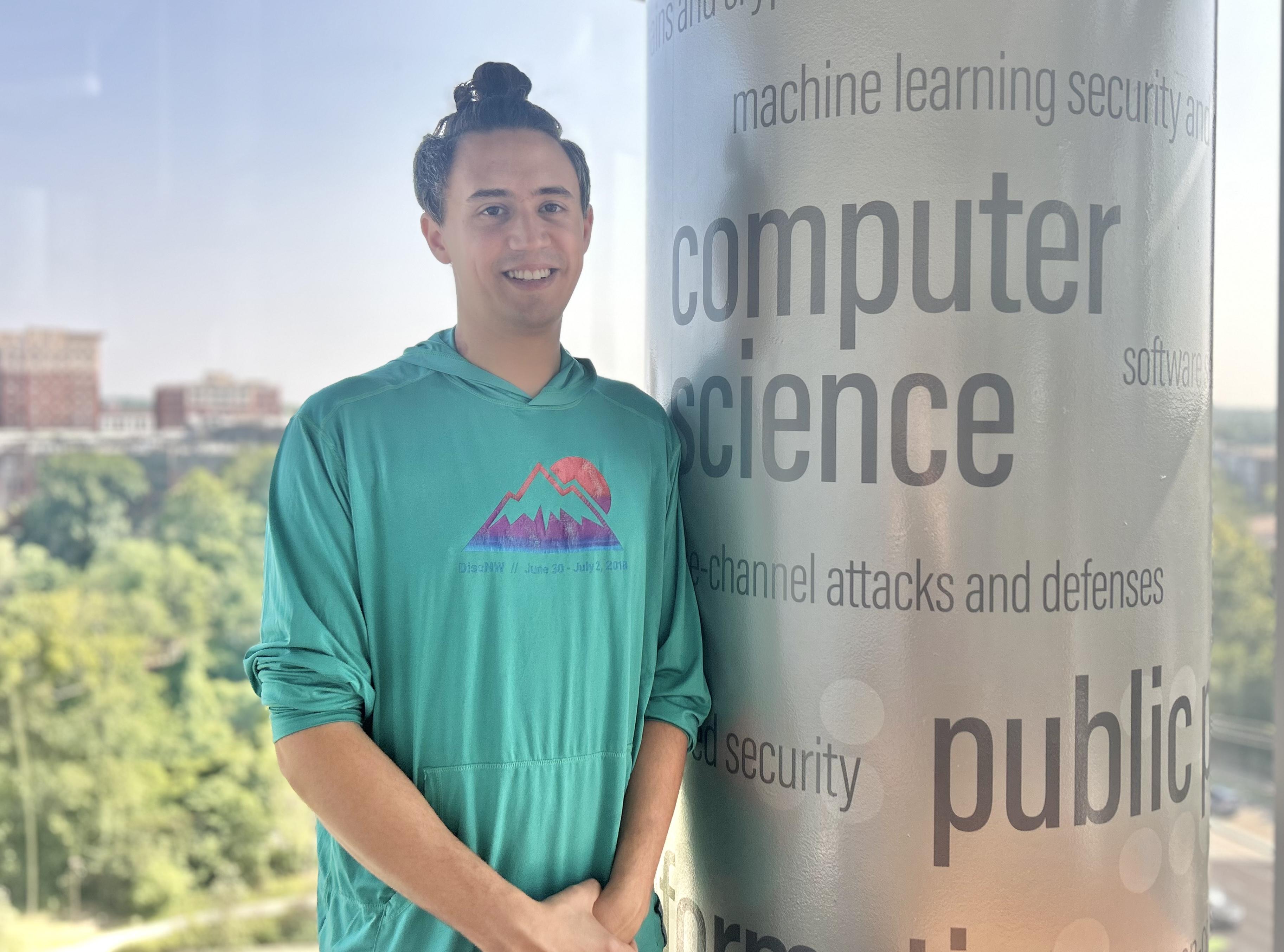
As digital privacy grows more crucial, a fresh approach focused on “human-centered cryptography” is set to change the game.
Security and privacy expert Gabriel (Gabe) Kaptchuk, who joins the University of Maryland this semester as an assistant professor of computer science, is at the forefront of this groundbreaking work.
Kaptchuk, who has a joint appointment in the University of Maryland Institute for Advanced Computer Studies (UMIACS), is developing privacy systems that go beyond traditional, abstract methods. Instead, Kaptchuk’s research emphasizes a human-centered approach that responds to how people actually interact with technology.
“At its core, cryptography and security are really social sciences masquerading as mathematics,” says Kaptchuk, who is a core faculty member in the Maryland Cybersecurity Center. “It's about formalizing power dynamics and relationships into systems that protect and empower individuals and organizations."
One example is a project that Kaptchuk recently worked on with Museums Moving Forward, creating a privacy-enhanced survey platform designed to address sensitive workplace issues like harassment. The platform ensured that while aggregate data was visible, individual responses remained protected from everyone, including data scientists.
Kaptchuk and others are currently working on a project that would support the development of a new query-driven platform with an easy-to-use interface that has enhanced privacy features. The goal is to create a tool that integrates smoothly into users’ routines and is ready for widespread use, he says.
Kaptchuk’s fascination with human behavior and the complexities of cryptographic systems began as an undergraduate at Johns Hopkins University, where practical cryptography courses ignited his interest. He enjoyed exploring how systems could be made resilient and break-proof. This passion guided him toward research in security and privacy, culminating in both a master’s and Ph.D. in computer science from Hopkins.
After that, Kaptchuk was a research assistant professor in the Department of Computer Science at Boston University, where he further honed his expertise.
Kaptchuk sees his affiliation with UMIACS as an ideal environment to cultivate his unconventional approaches to digital security and privacy, valuing the institute’s collaborative environment and diverse perspectives. He plans to leverage UMIACS’ computational resources to develop secure and practical cryptographic solutions that are efficient and accessible, even on mobile devices.
“I see computer science as a big tent,” Kaptchuk says. “There’s immense potential in interdisciplinary collaboration and exploring computing from different angles. At Maryland, I look forward to integrating these insights into my work and pushing the boundaries of human-centered cryptography.”
He is also enthusiastic about the unique prospects available in the Washington, D.C., area that can enhance his research, scholarship and outreach efforts.
“Being in D.C. and having the opportunity to engage with policymaking and the legislative world is really exciting for me,” Kaptchuk says. “It presents new challenges and opportunities to influence how privacy technologies are shaped and implemented.”
—Story by Melissa Brachfeld, UMIACS communications group